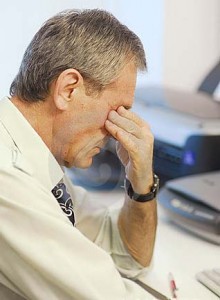
More evidence that low-calorie sweeteners are bad for your health
Studies show that artificial sweeteners can raise the risk of hypertension, metabolic syndrome, type 2 diabetes and heart disease, including stroke.

Natural Health News — Men who have difficulty falling asleep at night or staying asleep may be at increased risk for prostate cancer, according to new research.
A prospective study of 2,102 Icelandic men ages 67 to 96 found a 70% increased risk for prostate cancer among those who had problems falling asleep and a two-fold increased risk for those who had difficulty staying asleep.
At the beginning of the study participants answered questions that addressed, amongst other things:
Data on family history of prostate cancer, smoking status, and benign prostate disease diagnosis was also taken into account.
Risk greater for advanced stage cancer
Participants were followed for a mean 5 years and sleep disturbances were common in 6-20% of participants.
The link between poor sleep and the risk of cancer was strongest for advanced prostate cancer (stage 3 or later disease); according to the research published in the journal Cancer, Epidemiology, Biomarkers, and Prevention this increase risk by more than threefold.
“Prostate cancer is one of the leading public health concerns in men; if confirmed in future studies, the association between sleep disruption and prostate cancer risk may open new avenues for prevention,” the authors wrote.
Not just prostate cancer
Although the authors suggest that their study is not definitive, they write that “our data support the hypothesis that some aspect related to sleep disruption may confer an increased risk of prostate cancer.”
Prior research had shown associations between prostate cancer and sleep disruption as well as links with both breast cancer and colon cancer. Other researchers have speculated that disruption of circadian rhythm and an increase in oxidative stress due to lack of sleep may explain the increased risk.

Please subscribe me to your newsletter mailing list. I have read the
privacy statement